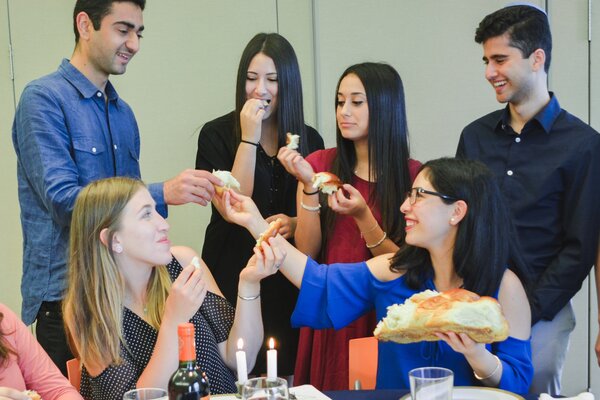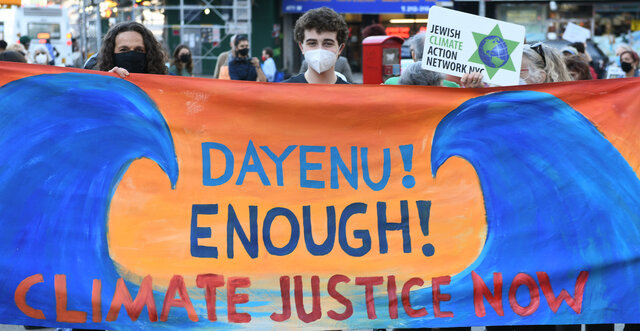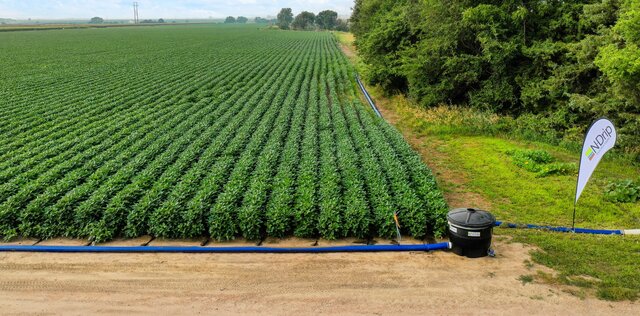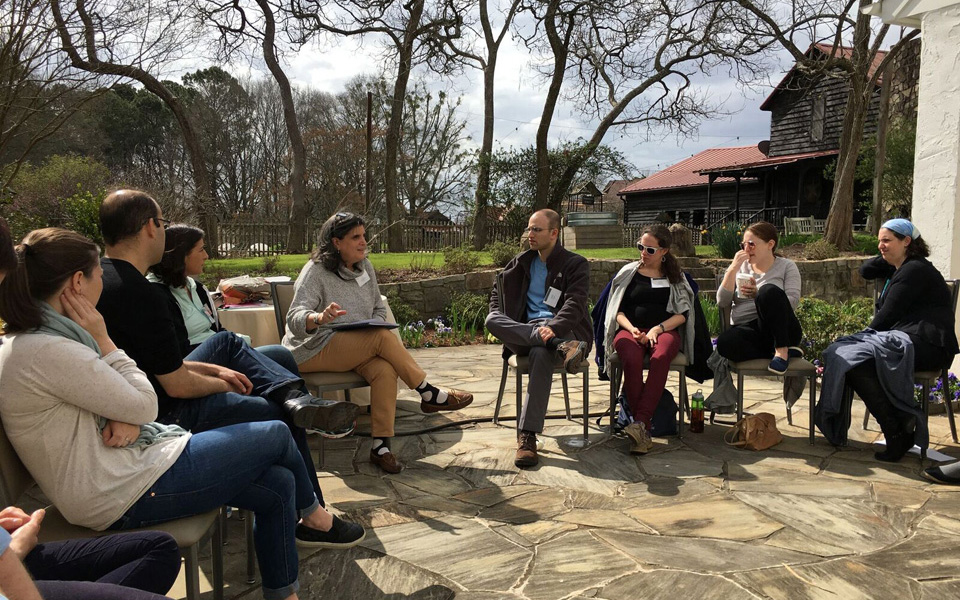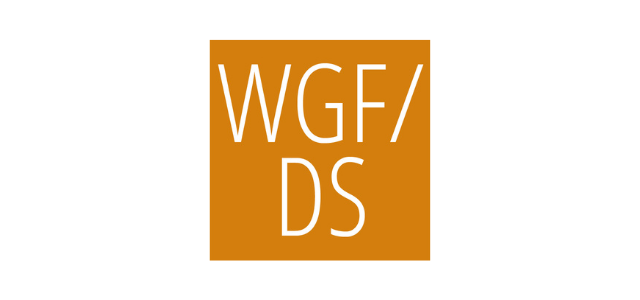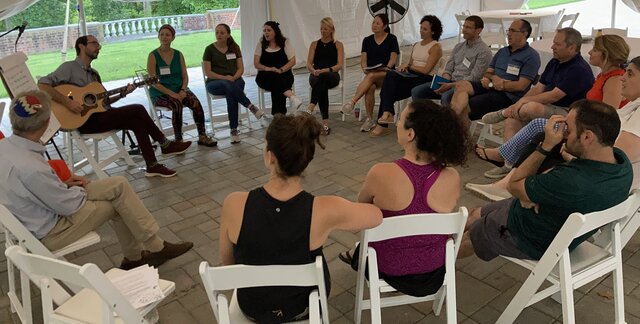The Latest From The Foundation
Dispatches from the network and updates from the Foundation.
19
Oct 2021
Preserving the Future through Open Spaces
WIF Alum Shahar Solar (Class 25) and Yael Hamerman
The Valley is now a stellar example and an inspiring story of a response to this type of issue and public engagement, such that leads to better social, economic, and environmental benefits, providing solutions for the climate crisis in tandem with a direct improvement in the lives of its local residents.
19
Oct 2021
Will Our Climate Change Song Be an Elegy or a March?
WGF/DS Alum Dr. Hannah S. Pressman (Class 15)
The inverse of my daughter’s question about the stars (“Why are they there?”) is “Why are we here?” Why are we mortals here on Earth, if not to steward and safeguard this planet so that future generations can live here safely? We are here now, imbued with ru’ah, that miraculous word connoting breath, spirit, and wind, to ensure that our children and our children’s children will also, simply, be here.
If we think only of the enormity of the situation, we will be stifled from action, and there are plenty of actions one can take to move the needle forward, even if it is a small step forward. We cannot forget the prophetic words in Pirkei Avot (2:21), “You are not obligated to complete the work, but neither are you free to desist from it.”
Jews are remarkably resilient because we cling to hope and make difficult decisions for the sake of our descendants. We plant fruit trees for the next generation. We build endowments. We take action. And we pull back from it all for Shabbat and holidays. We have seeded ideas that billions of people worldwide have adopted, and the Jewish community and Israel can lead on climate issues as well.
As I was integrating the reality of living in this moment of climate emergency, I was having conversations with friends and colleagues about how the American Jewish community was not fully mobilizing our people and power to confront this crisis at the scale that is needed. This is the existential crisis of our time and the Jewish community, for a variety of reasons, has not been fully showing up.
As a lifelong entrepreneur, the last time I had a boss was when I was an associate at a law firm in the 1980s. But I was yearning to do something that would have a profound impact on the world, and which would remind everyone of Israel as a center of innovation.
Applications are now open for Class 6 of the Wexner Field Fellowship for promising Jewish professionals who plan to continue to pursue careers as professional leaders in the North American Jewish community.
After reviewing findings with the Rosov team, we have determined, in conversation with our partners at the William Davidson Foundation, to take some time to reflect on the data, reimagining and possibly redesigning the fellowship program to meet the needs and demands of a new generation of emerging Jewish leaders. To focus on this deep work, we will not accept a new WGF/DS class for the 2022/2023 academic year.
Nominations are now open for the New York JOC, Palm Beach, and San Francisco/Bay Area cohorts of the Wexner Heritage Program.
It is expensive to be Jewish. It is today and it always has been. The cost of being Jewish poses one of the most significant threats to the vibrancy and vitality of our community. As a forward-looking community interested in our future strength, we have an obligation to address the issue of the cost of Jewish life – and particularly the cost of education.
Video Categories
- Activism
- Antisemitism
- Climate Change
- Community
- COVID-19
- Crisis Leadership
- Education
- Elul
- Foundation Moments
- Gender
- Holidays
- Holocaust
- Israel
- Leadership through Torah
- Loss
- Politics
- Wexner Field Fellowship
- Wexner Graduate Fellowship/Davidson Scholars Program
- Wexner Heritage Program Seminars
- Wexner Israel Fellowship
- Wexner Senior Leaders
- Wexner Service Corps
- Wexner Summits
Blog Categories
- _About (11)
- _Alumni (6)
- _Core (3)
- _Landing Pages (38)
- _Programs (17)
- _Resources (5)
- _Summits (8)
- Antisemitism (7)
- Climate Change (13)
- COVID-19 (11)
- Difficult Conversations (21)
- Education (4)
- Gender (6)
- General News (144)
- Holocaust (3)
- Innovative Projects (268)
- Intergenerational Communication (6)
- Israel (159)
- Judaism in Online Spaces (11)
- Lessons in Leadership (240)
- Life’s Leadership Moments (294)
- Mentorship (54)
- Peoplehood (154)
- Play (7)
- Pluralism (3)
- Politics (10)
- Power (14)
- Professional Growth (34)
- Racial Justice (10)
- Self-care (25)
- Social Justice/Tikkun Olam (59)
- Summit Seeds (5)
- Text/Holidays (150)
- Uncategorized (6)
- Values and Ethics (24)
- WexFactor (8)
- Wexner Davidson Fellowship (2)
- Wexner Field Fellowship (28)
- Wexner Graduate Fellowship/Davidson Scholars Program (89)
- Wexner Heritage Program (100)
- Wexner Israel Fellowship (47)
- Wexner Senior Leaders (22)
- Wexner Service Corps (4)
- World conflicts (8)



